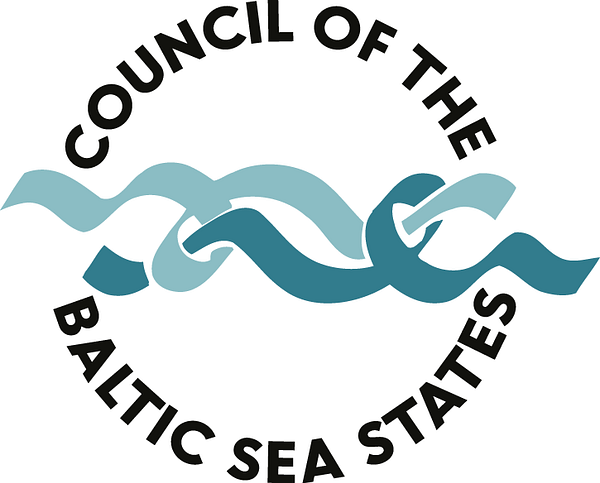Press release -
Germany takes over the presidency of the Council of the Baltic Sea States, vows to focus on offshore wind, dumped munitions and youth
On 1 July 2022, Germany has assumed the presidency of the Council of the Baltic Sea States (CBSS) for one year, taking over from Norway. Under its presidency, Germany will notably focus on offshore wind energy, dumped munitions and youth in the Baltic Sea region.
“I firmly believe that all democratic Baltic Sea states must stand together – now more than ever,” said Annalena Baerbock, the German Minister of Foreign Affairs, in a video address, referring to the current geopolitical shifts taking place in the Baltic Sea region due to the Russian aggression against Ukraine.
“This region is strategically important and holds enormous potential, for example in terms of our energy supply,” said Baerbock who will lead the German Presidency of the CBSS and be the main speaker for the organisation for the next year.
Three German priorities: offshore wind energy, dumped munitions and youth
In a bid to support the shared regional goal of attaining climate neutrality by 2050 while, at the same time, addressing the issue of energy security, Germany has identified the promotion of offshore wind energy as the first priority under its presidency of the CBSS. In close cooperation with the energy ministers of the Baltic Sea region countries, Germany wishes to use the CBSS as a platform for initiating more concrete forms of regional cooperation regarding offshore wind.
The second German priority is on dumped munitions in the Baltic Sea, which pose a risk to public health, maritime activities and the marine environment. A legacy of the second world war, up to 400,000 tonnes of conventional explosives and around 40,000 tonnes of chemical weapons are currently littering the Baltic’s seafloor. Germany, therefore, intends to use the CBSS as a platform for promoting a common regional understanding of the impacts and challenges associated with munitions dumped in the sea.
Since young people are impacted by many of the issues currently addressed in the various formats of Baltic Sea cooperation, youth is the third German priority. Germany intends to give young people a voice when it comes to finding responses to the challenges facing the region. Germany is furthermore committed to strengthening and expanding personal encounters between young people from various countries in the Baltic Sea region. In general, youth is a cross-cutting issue in the CBSS.
In addition, Germany will also lend its support to the work undertaken in the CBSS’s three priority areas – Regional Identity, Safe & Secure Region, and Sustainable & Prosperous Region, further building on the achievements of the previous presidency of Norway.
Baerbock is due to invite her CBSS counterparts to Germany in the spring of 2023.
Resources:
- Work programme of the German Presidency
- Video by German Foreign Minister Annalena Baerbock on the German Presidency of the CBSS
- Presidency news release on the German MFA website
- German Presidency’s CBSS website
CBSS media contacts:
Dominik Littfass
Email: media@cbss.org
Tel: +46 76 116 67 53
Note to editors:
- About the Council of the Baltic Sea States (CBSS): Consisting of 11 members – the 10 Member States (Denmark, Estonia, Finland, Germany, Iceland, Latvia, Lithuania, Norway, Poland and Sweden) and the European Union –, the CBSS supports a global perspective on regional problems. These include politically and practically translating the UN Sustainable Development Goals, the Paris Climate Agreement, the Sendai Framework on Disaster Risk Reduction, the Palermo Protocol and the UN Convention on the Rights of the Child, into regional actions on the ground. The CBSS functions as a coordinator of a multitude of regional actors in the areas of its three long-term priorities: Regional Identity, Sustainable & Prosperous Region, Safe & Secure Region. Read more about our priorities and work: https://cbss.org/our-work/
- About the CBSS Presidency: The Presidency of the Council rotates between the Member States on an annual basis and lasts from 1 July to 30 June. Each Presidency is led by the Minister of Foreign Affairs of the country that is holding it. The Foreign Minister chairing the Presidency is the main speaker for the organisation. Each Presidency usually identifies a set of strategic priorities to be focussed on by the Council under its tenure. On 1 July 2022, Germany has replaced Norway as Presidency of the Council of the Baltic Sea States. The German Presidency is led by Minister of Foreign Affairs Ms. Annalena Baerbock.
Related links
Topics
- Politics
Categories
- östersjön
- council of the baltic sea states
- german ministry of foreign affairs
- germany
- annalena baerbock
- östersjöregionen
- östersjöstaternas råd
- eu
- cbss
- german presidency
Regions
- Stockholm
The Council of the Baltic Sea States (CBSS) is an inter-governmental organisation, building collaboration and trust in the Baltic Sea Region since 1992. The Members of the Council are Denmark, Estonia, Finland, Germany, Iceland, Latvia, Lithuania, Norway, Poland, and Sweden, as well as the European Union. The CBSS provides a platform for governments, organisations, communities, and people to build and strengthen partnerships. The Presidency of the Council rotates among the Member States annually. Germany currently holds the Presidency of the Council of the Baltic Sea States 2022-2023.
